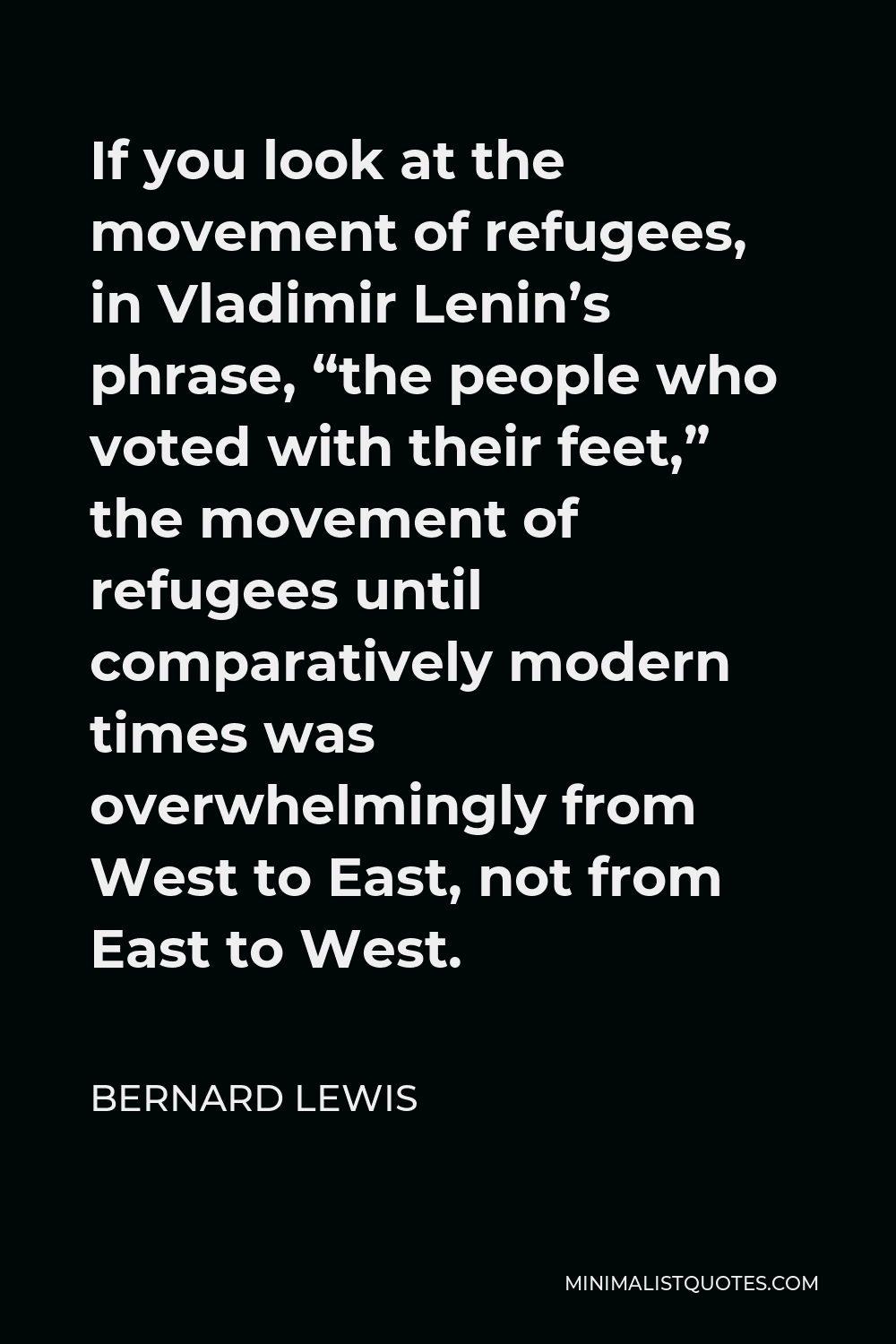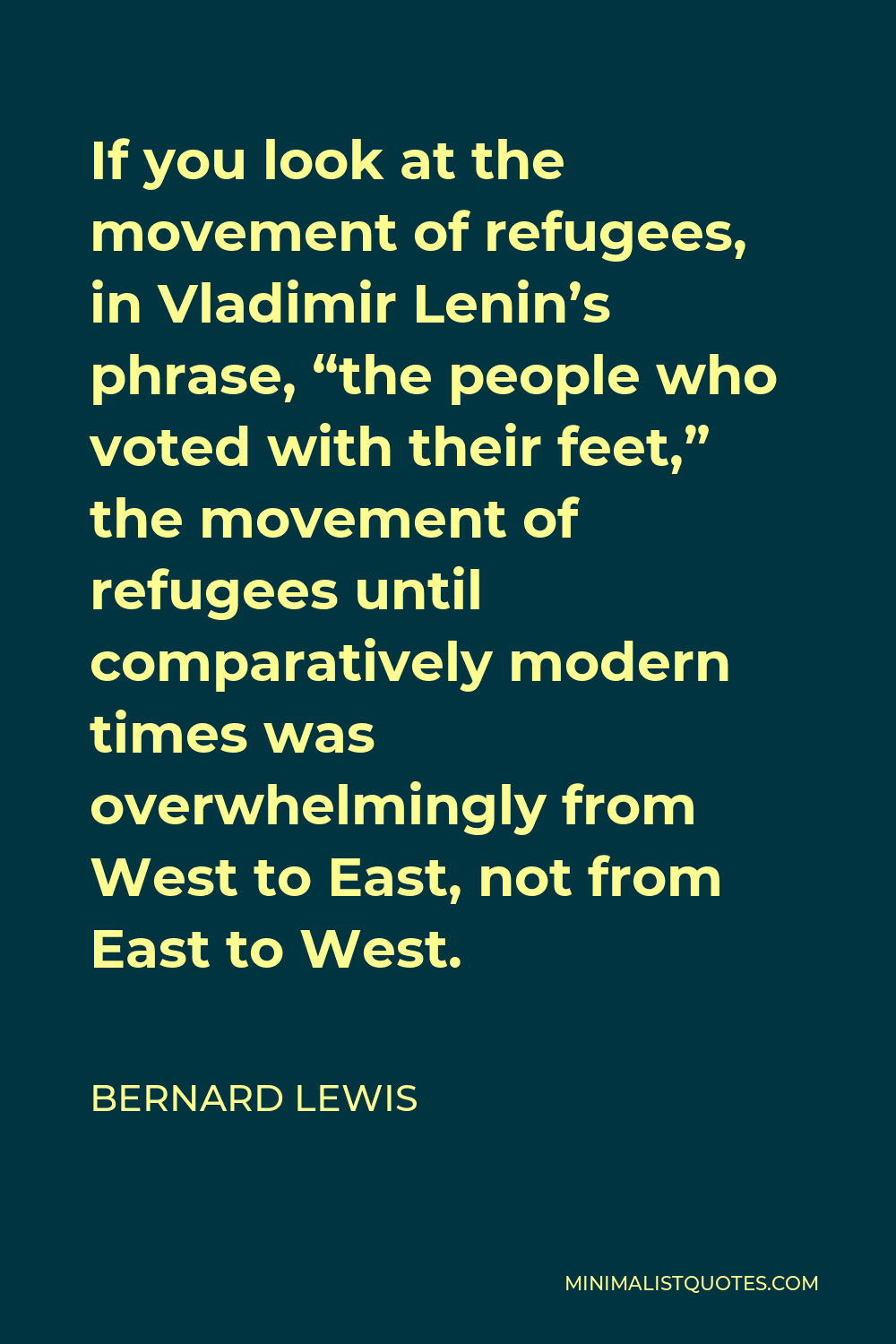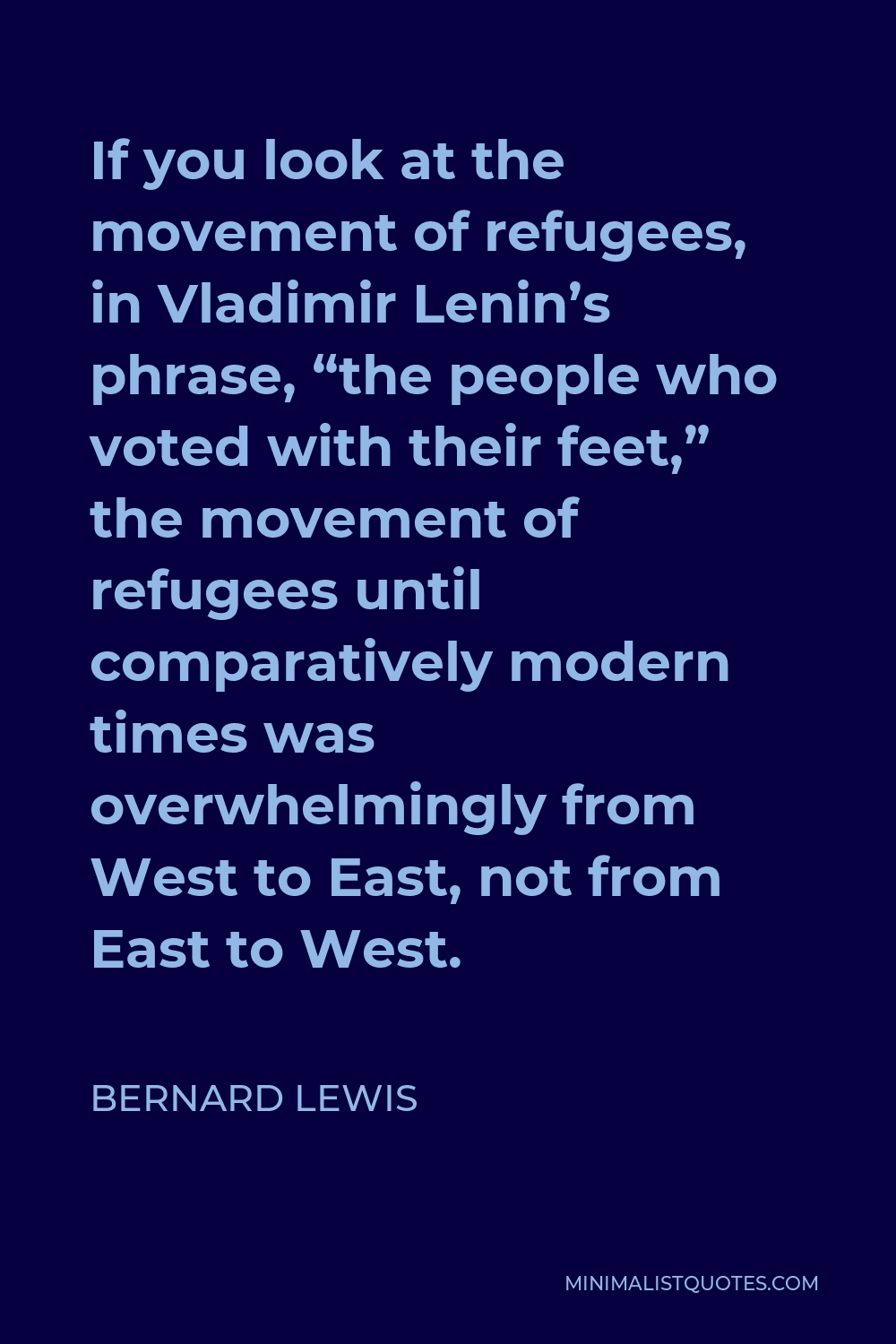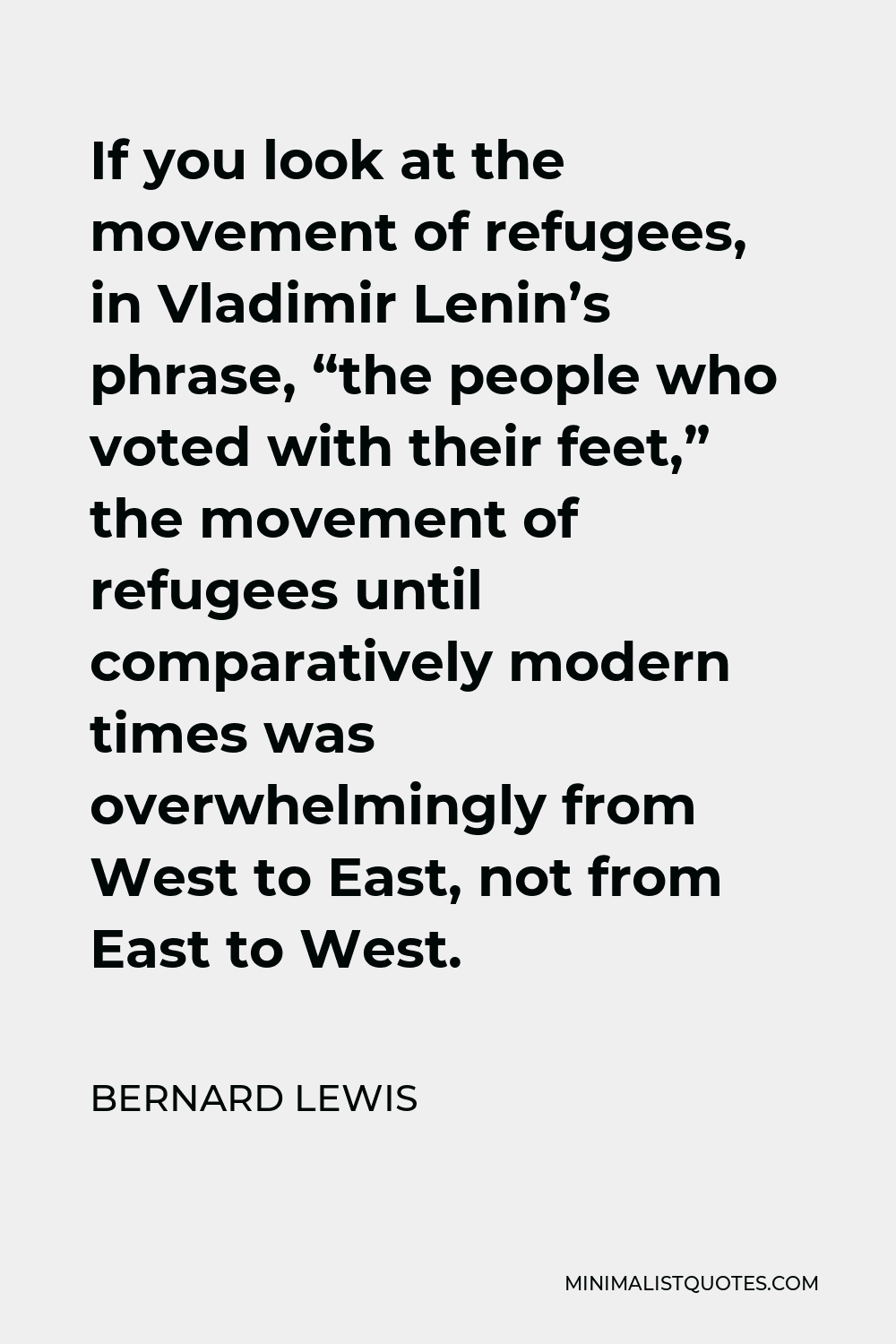I think confronted with the modern world or with the rest of the world, I think people are becoming aware that the Western and Islamic civilizations have more in common than apart.
BERNARD LEWISIf you look at the movement of refugees, in Vladimir Lenin’s phrase, “the people who voted with their feet,” the movement of refugees until comparatively modern times was overwhelmingly from West to East, not from East to West.
More Bernard Lewis Quotes
-





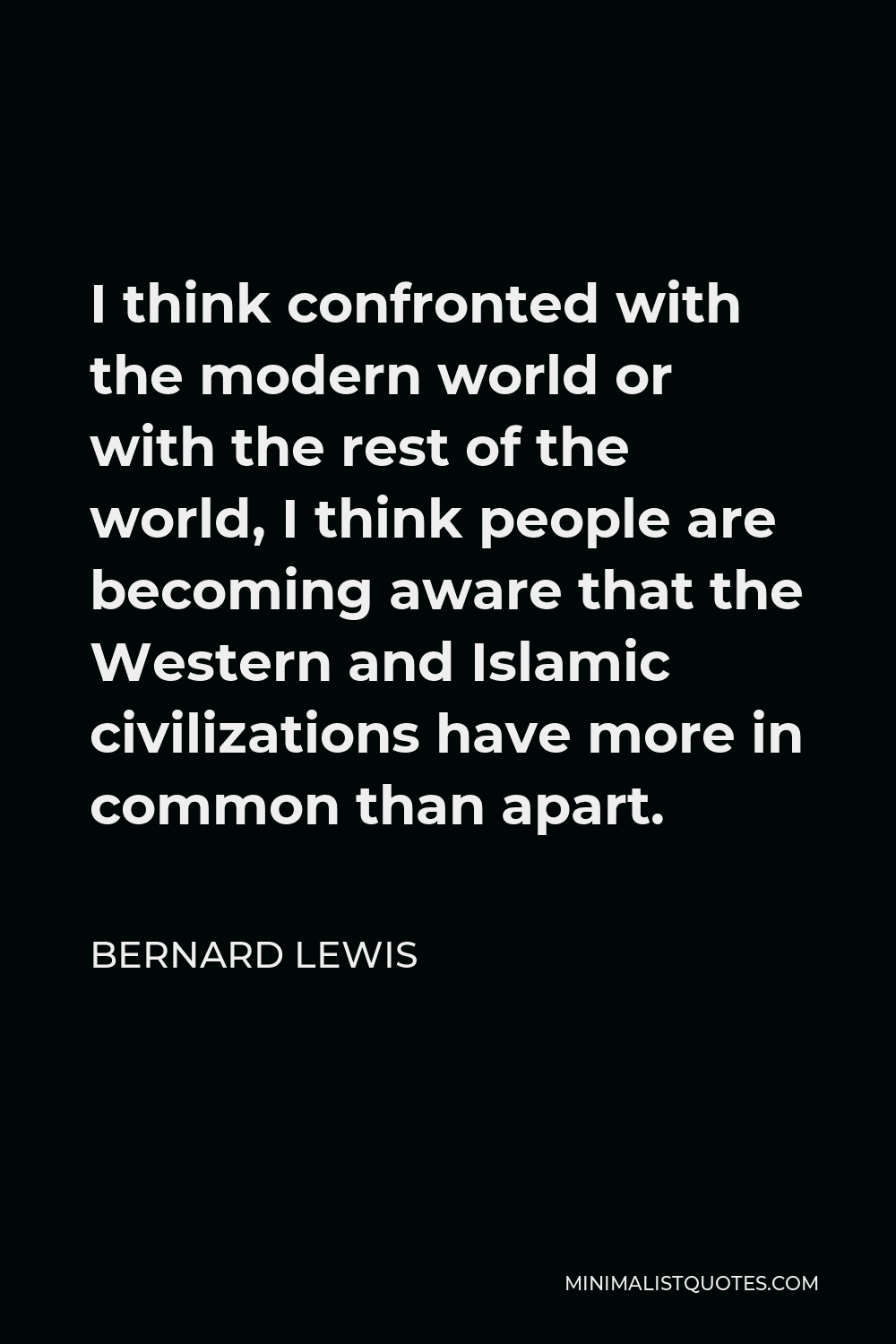
-





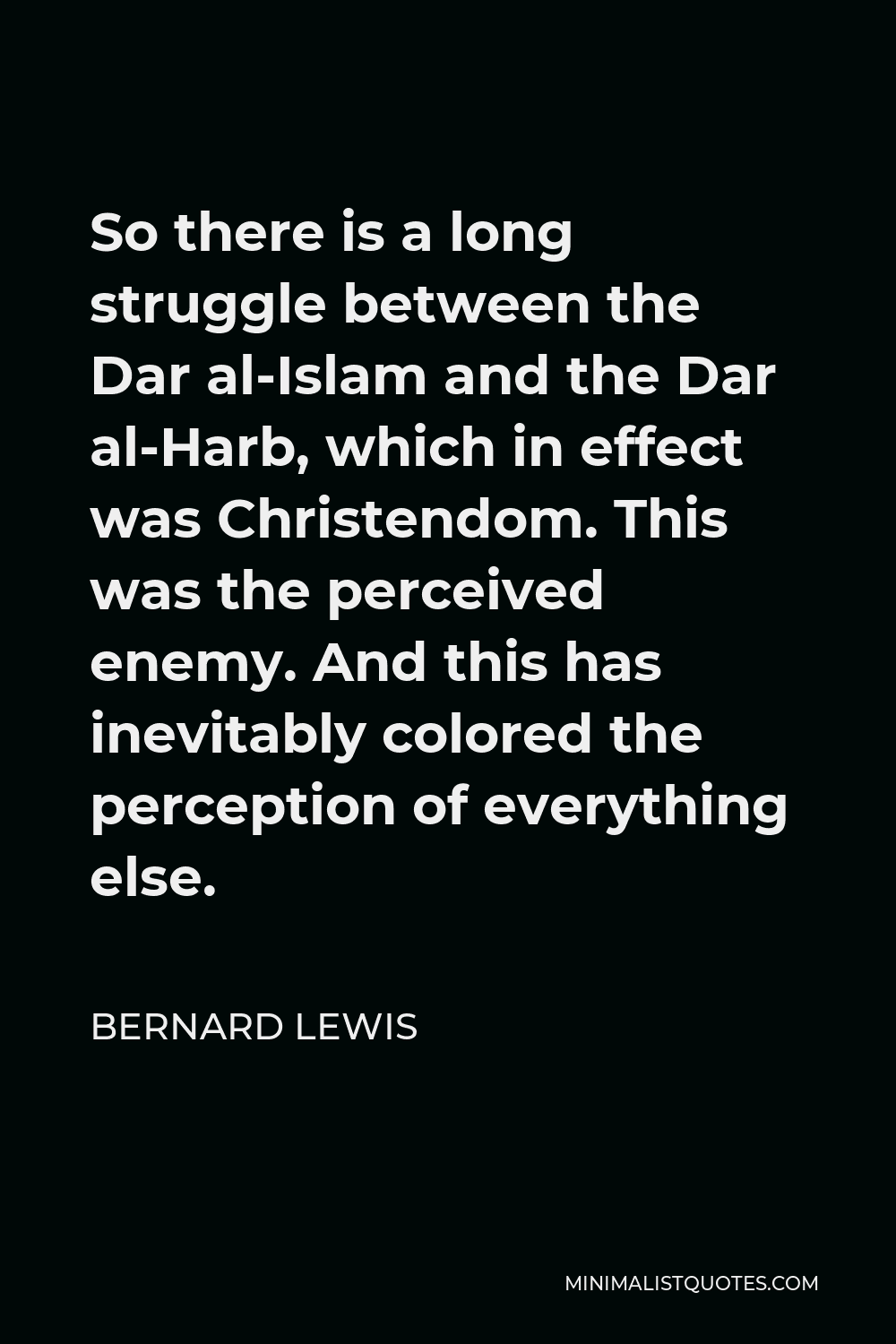
So there is a long struggle between the Dar al-Islam and the Dar al-Harb, which in effect was Christendom. This was the perceived enemy. And this has inevitably colored the perception of everything else.
BERNARD LEWIS -





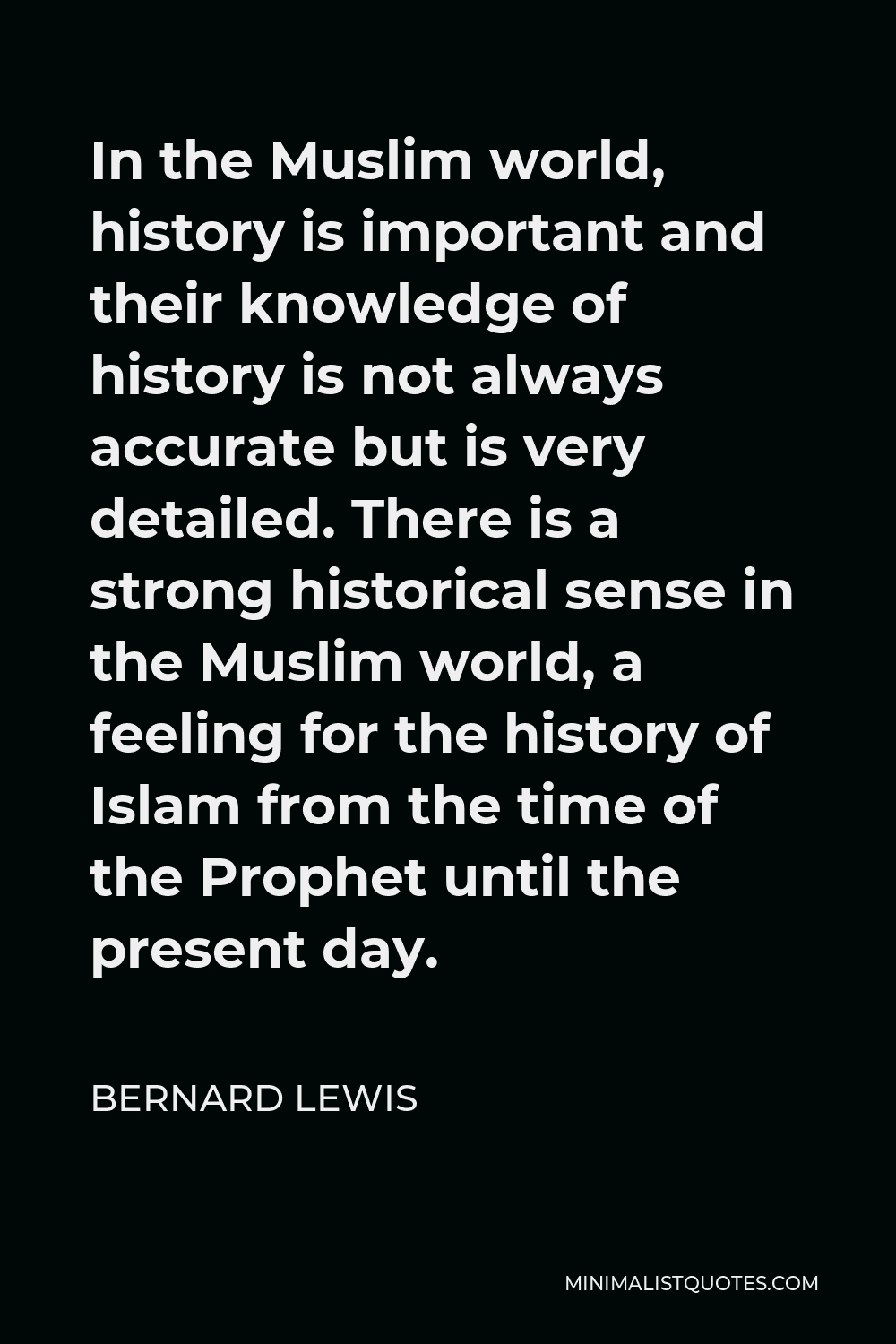
In the Muslim world, history is important and their knowledge of history is not always accurate but is very detailed. There is a strong historical sense in the Muslim world, a feeling for the history of Islam from the time of the Prophet until the present day.
BERNARD LEWIS -





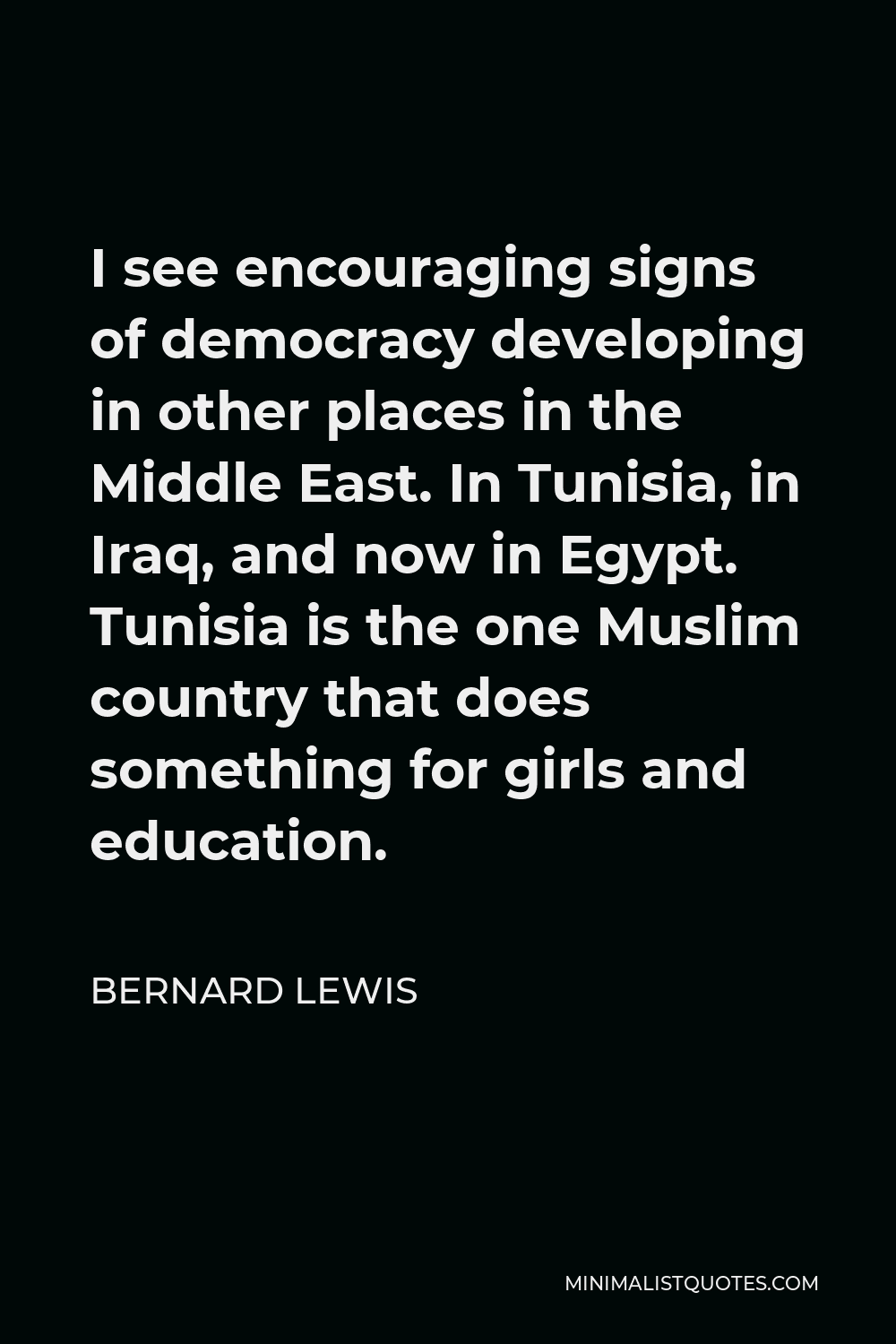
I see encouraging signs of democracy developing in other places in the Middle East. In Tunisia, in Iraq, and now in Egypt. Tunisia is the one Muslim country that does something for girls and education.
BERNARD LEWIS -





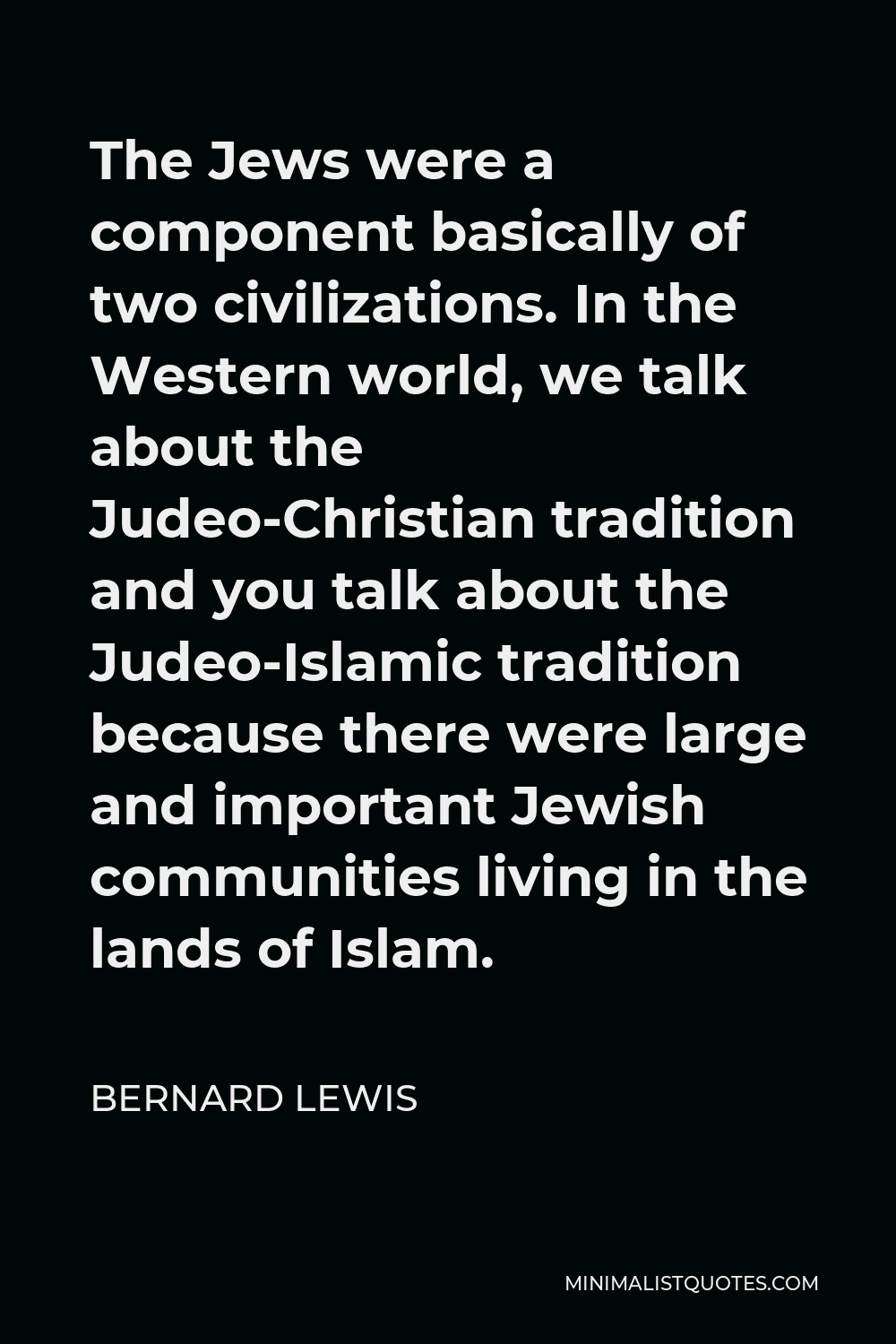
The Jews were a component basically of two civilizations. In the Western world, we talk about the Judeo-Christian tradition and you talk about the Judeo-Islamic tradition because there were large and important Jewish communities living in the lands of Islam.
BERNARD LEWIS -





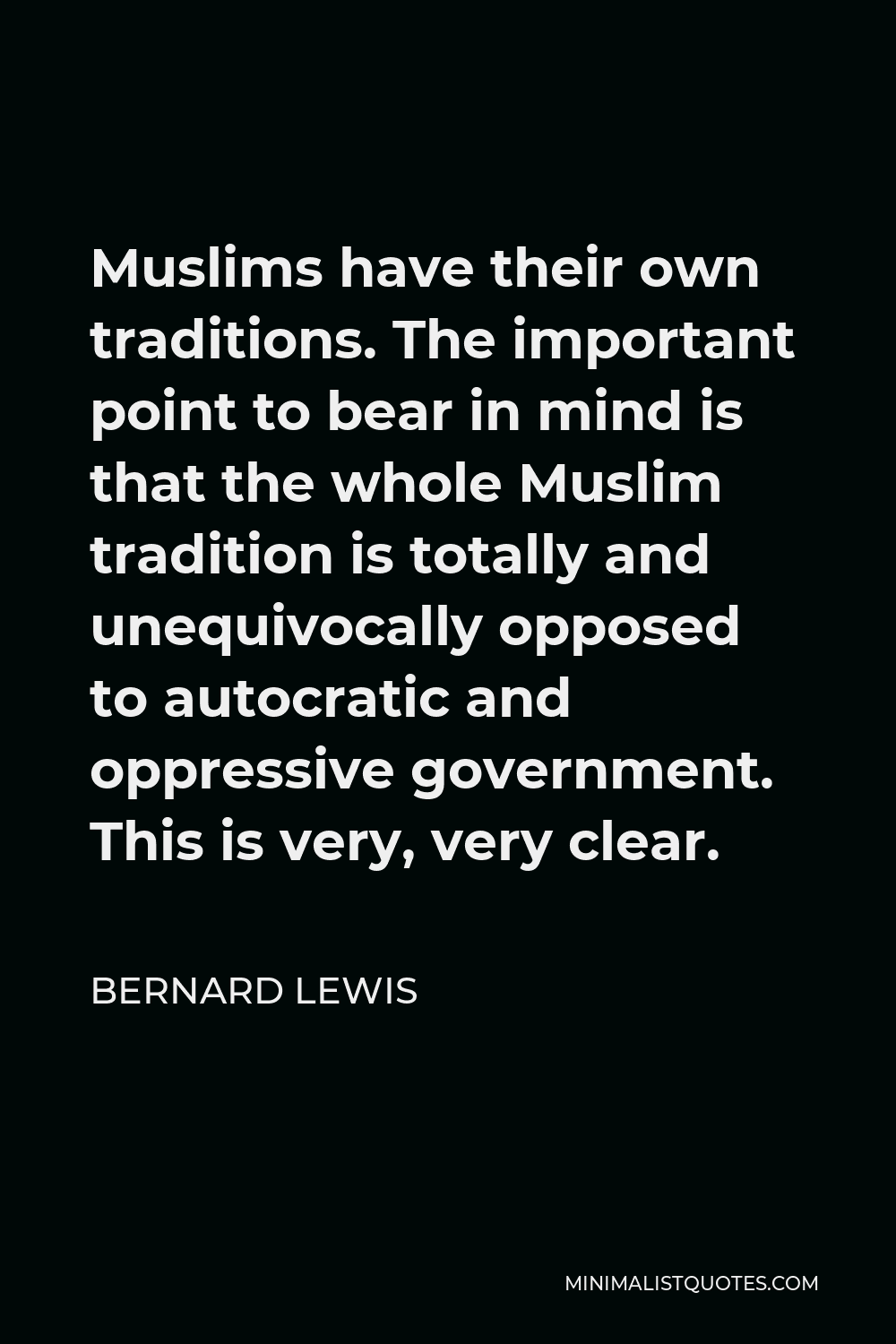
Muslims have their own traditions. The important point to bear in mind is that the whole Muslim tradition is totally and unequivocally opposed to autocratic and oppressive government. This is very, very clear.
BERNARD LEWIS -





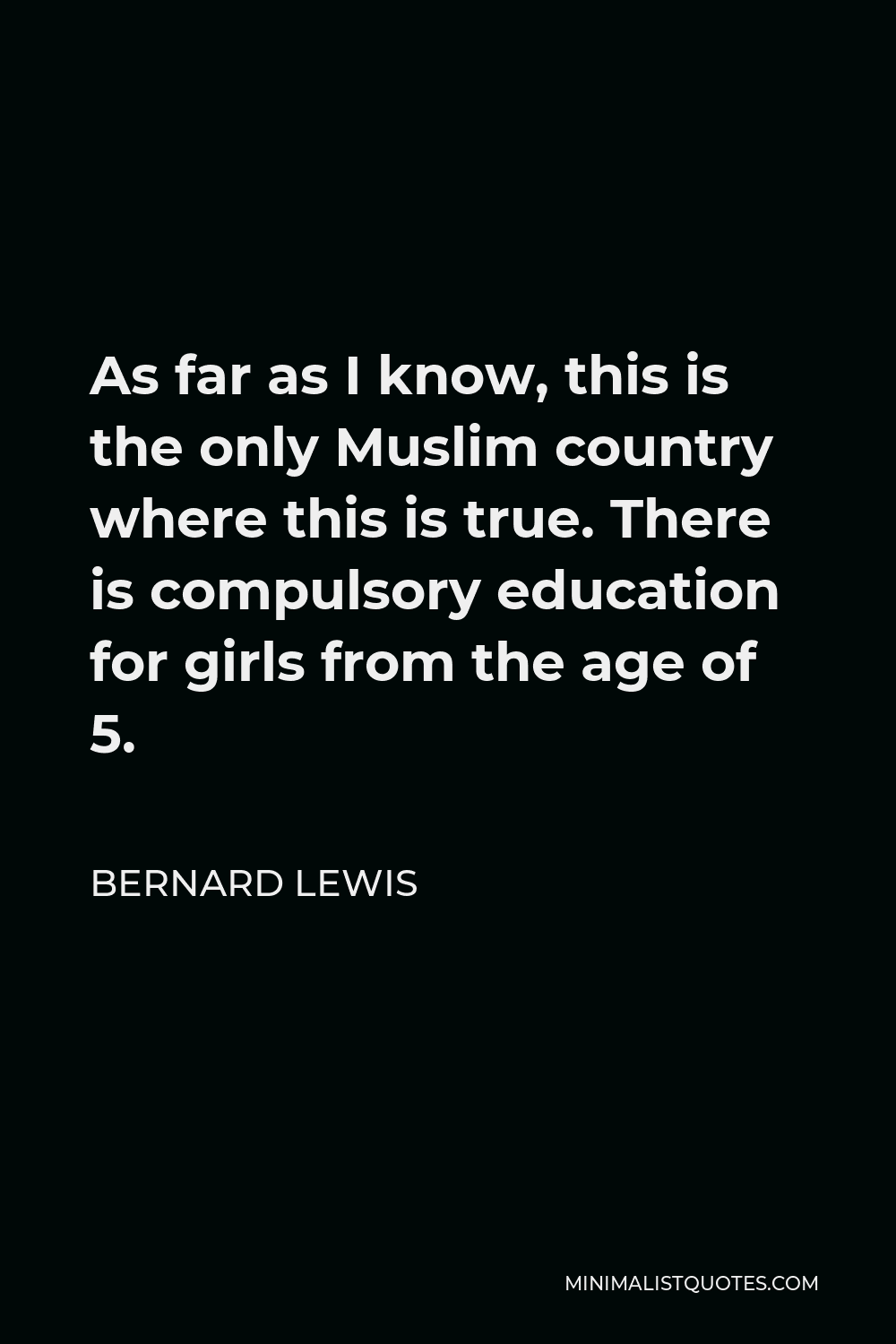
As far as I know, this is the only Muslim country where this is true. There is compulsory education for girls from the age of 5.
BERNARD LEWIS -





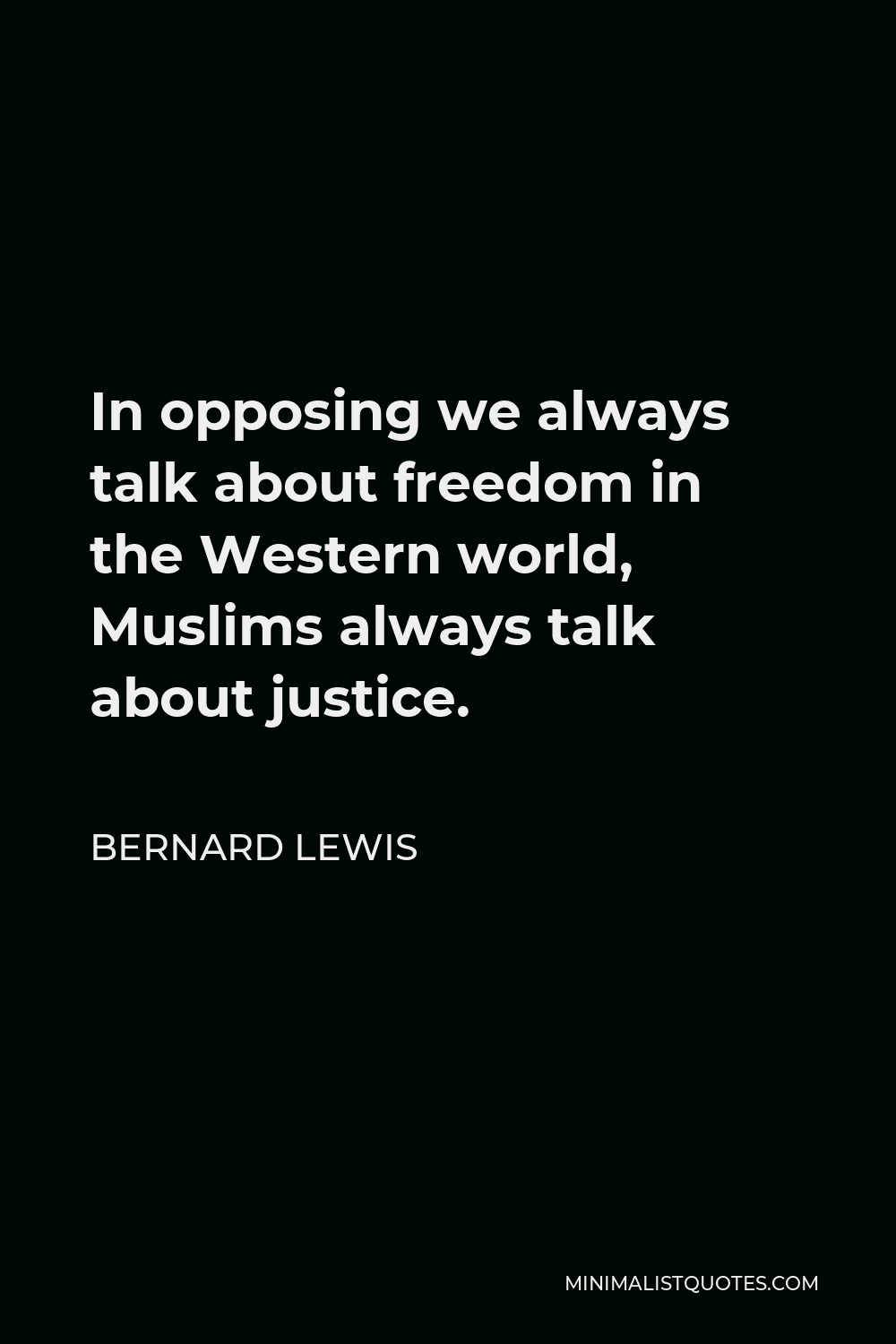
In opposing we always talk about freedom in the Western world, Muslims always talk about justice.
BERNARD LEWIS -





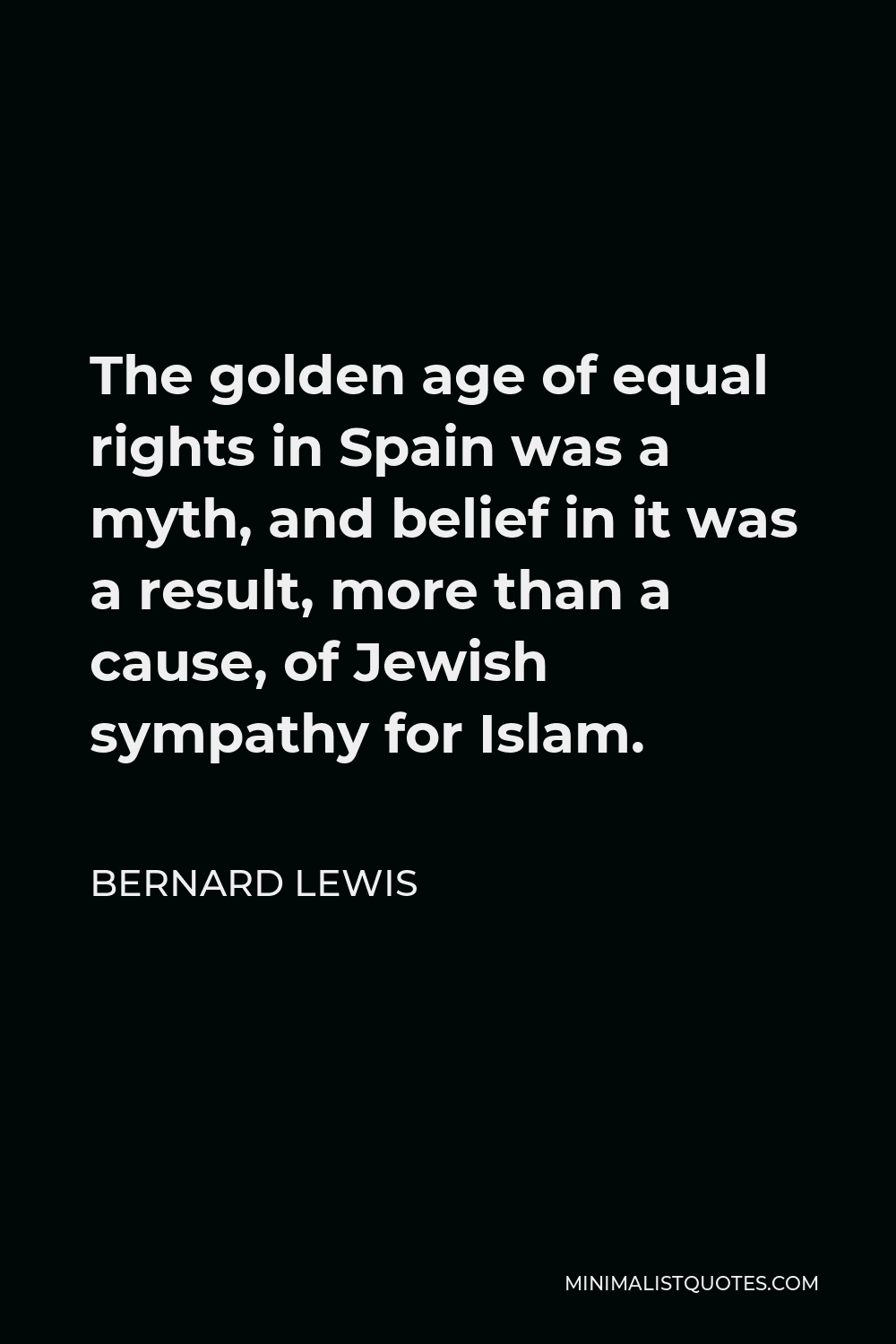
The golden age of equal rights in Spain was a myth, and belief in it was a result, more than a cause, of Jewish sympathy for Islam.
BERNARD LEWIS -





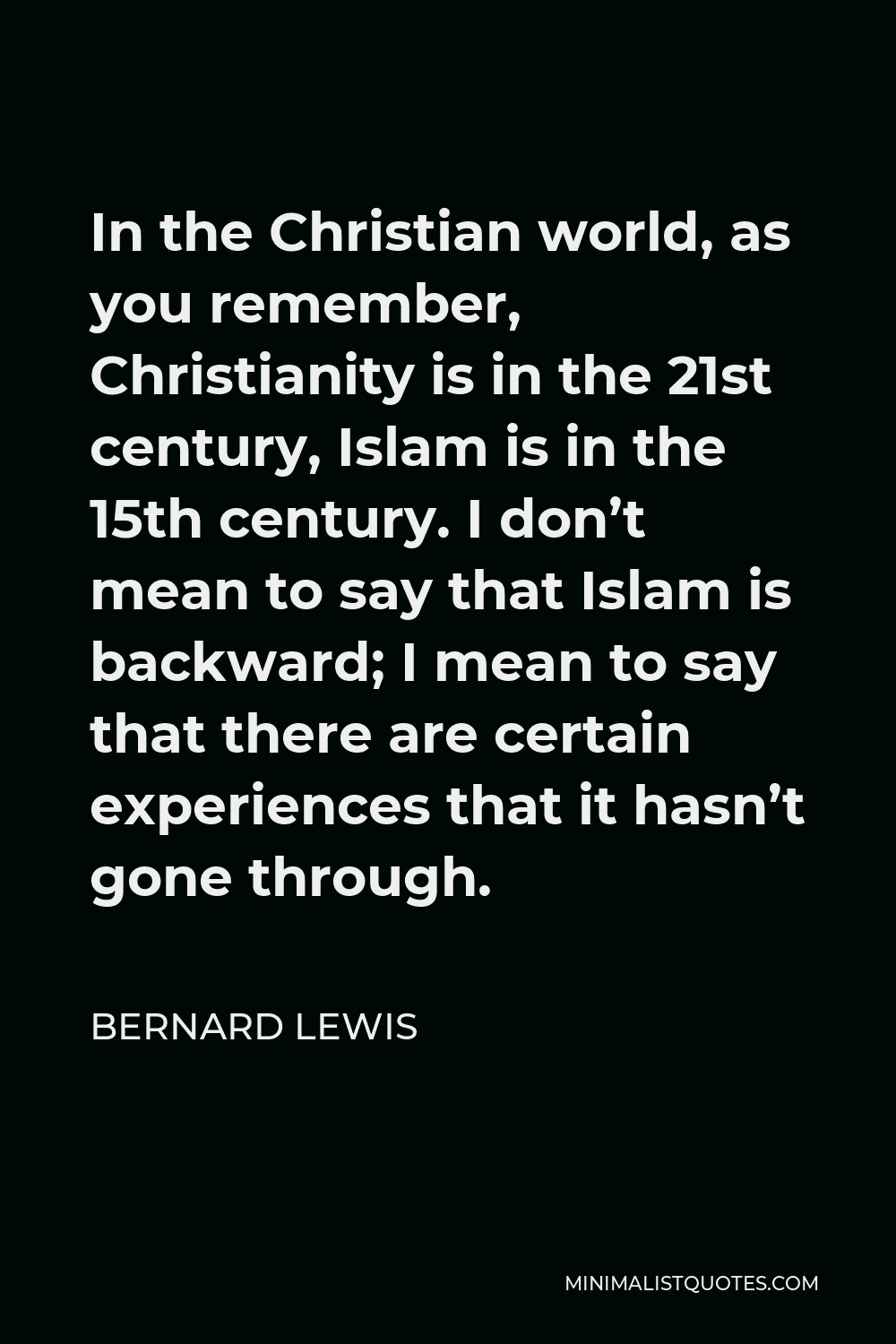
In the Christian world, as you remember, Christianity is in the 21st century, Islam is in the 15th century. I don’t mean to say that Islam is backward; I mean to say that there are certain experiences that it hasn’t gone through.
BERNARD LEWIS -





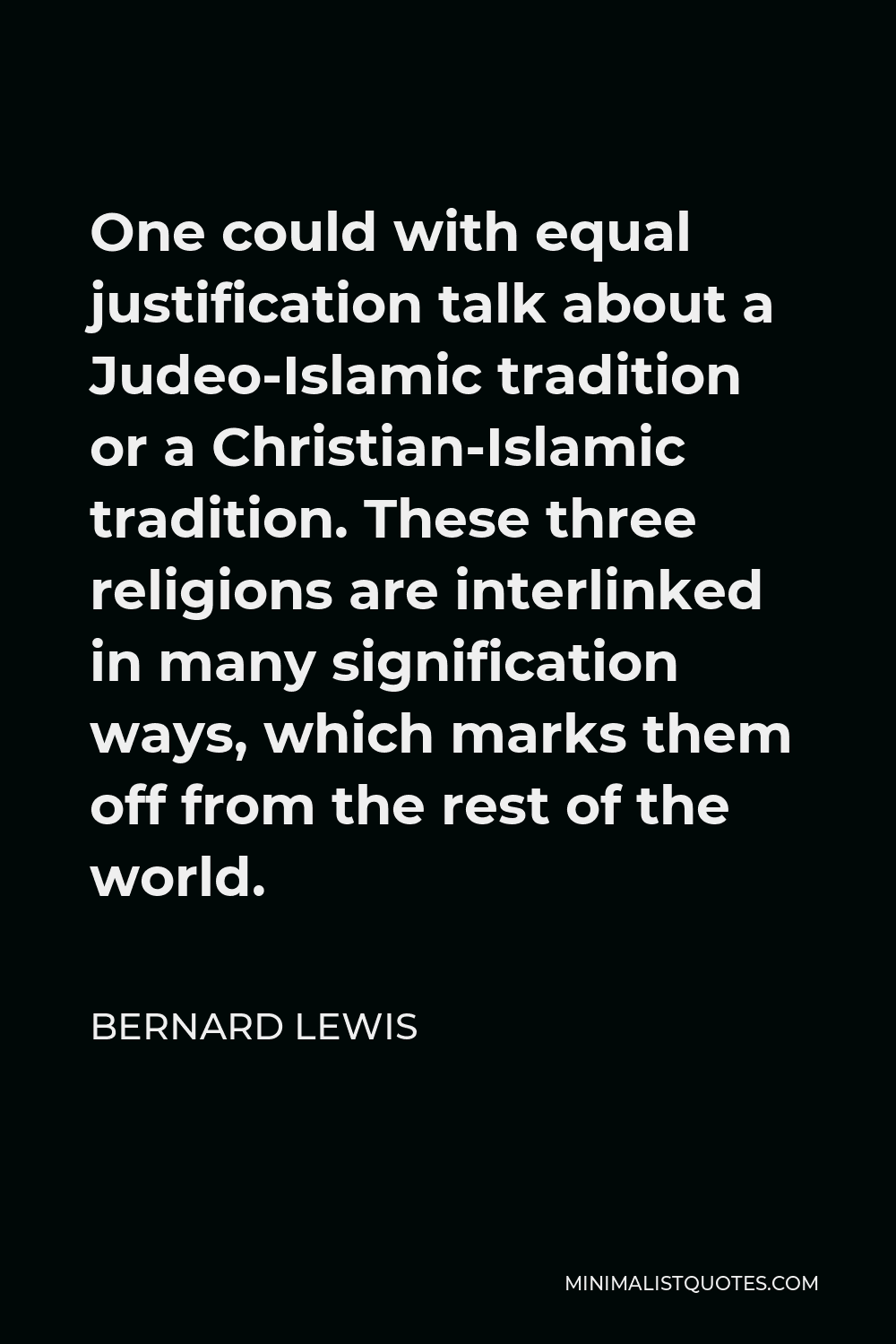
One could with equal justification talk about a Judeo-Islamic tradition or a Christian-Islamic tradition. These three religions are interlinked in many signification ways, which marks them off from the rest of the world.
BERNARD LEWIS -





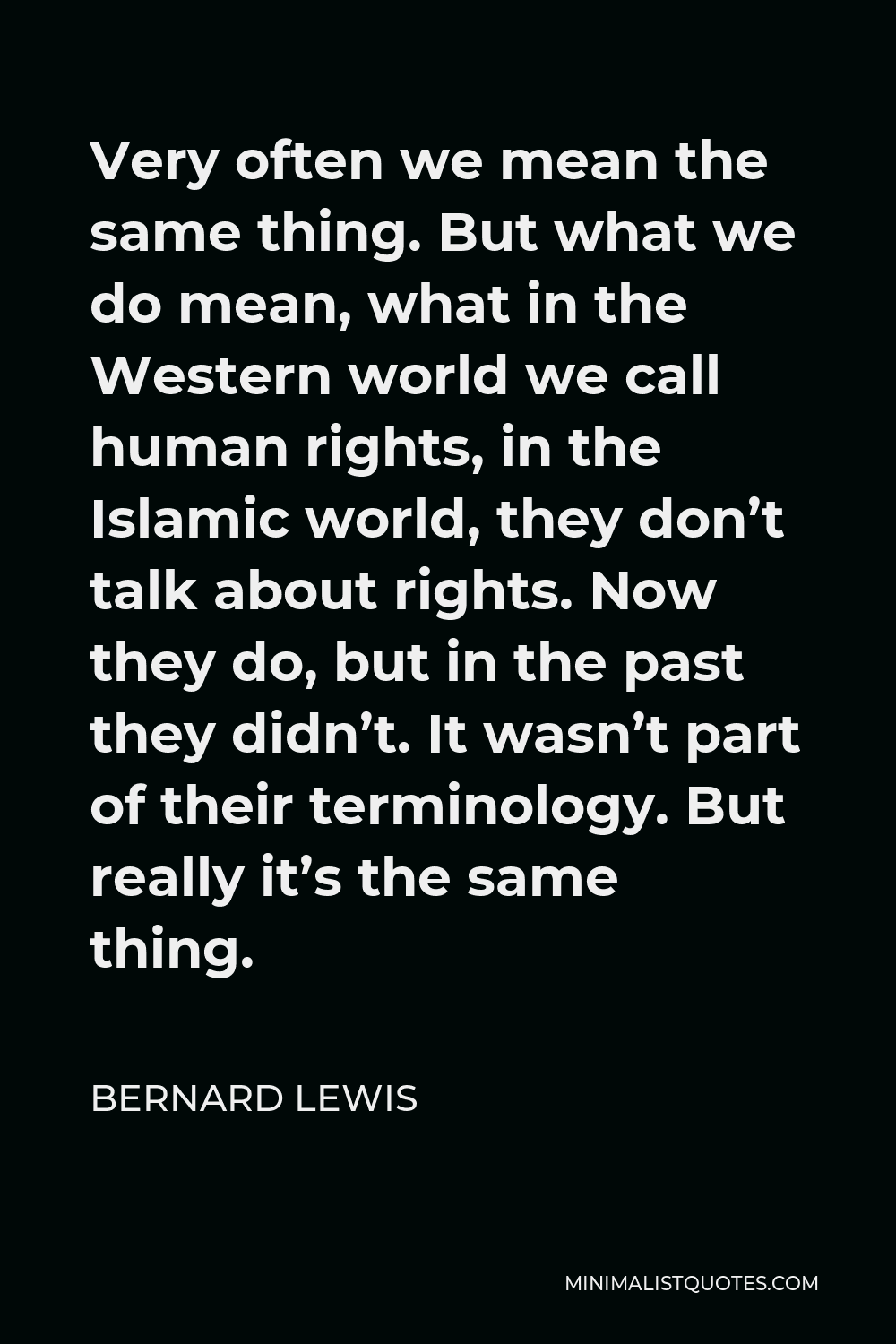
Very often we mean the same thing. But what we do mean, what in the Western world we call human rights, in the Islamic world, they don’t talk about rights. Now they do, but in the past they didn’t. It wasn’t part of their terminology. But really it’s the same thing.
BERNARD LEWIS -





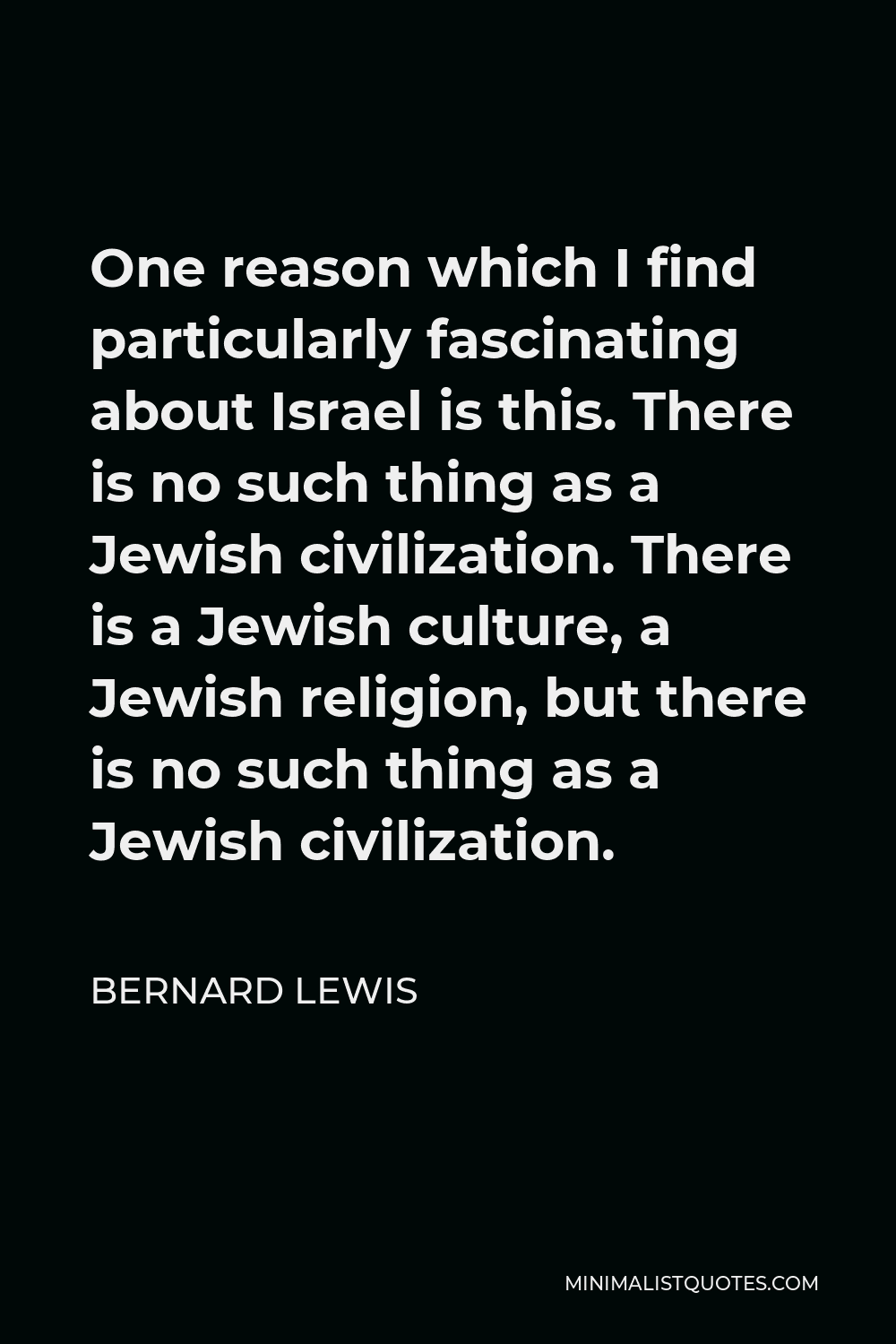
One reason which I find particularly fascinating about Israel is this. There is no such thing as a Jewish civilization. There is a Jewish culture, a Jewish religion, but there is no such thing as a Jewish civilization.
BERNARD LEWIS -





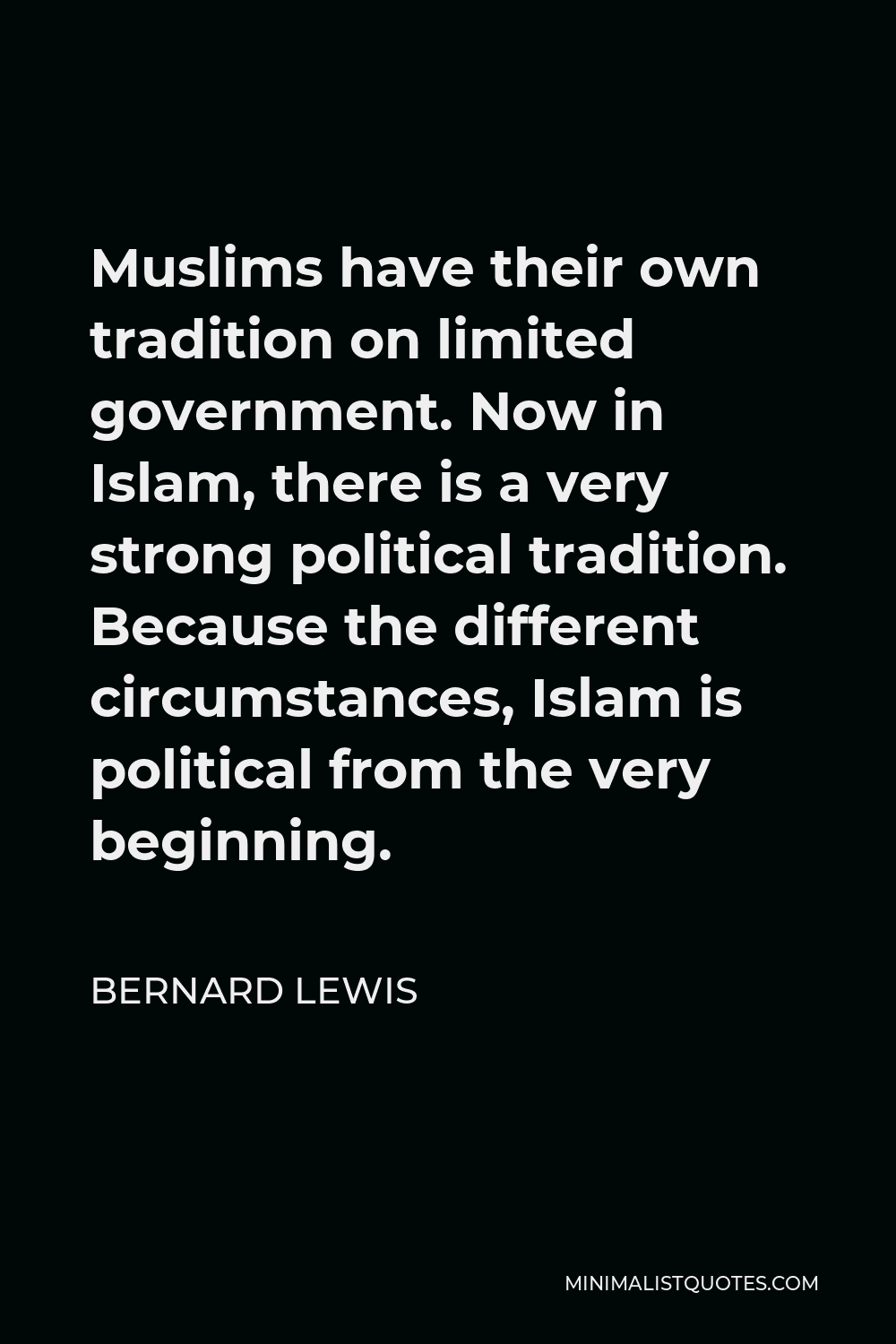
Muslims have their own tradition on limited government. Now in Islam, there is a very strong political tradition. Because the different circumstances, Islam is political from the very beginning.
BERNARD LEWIS -





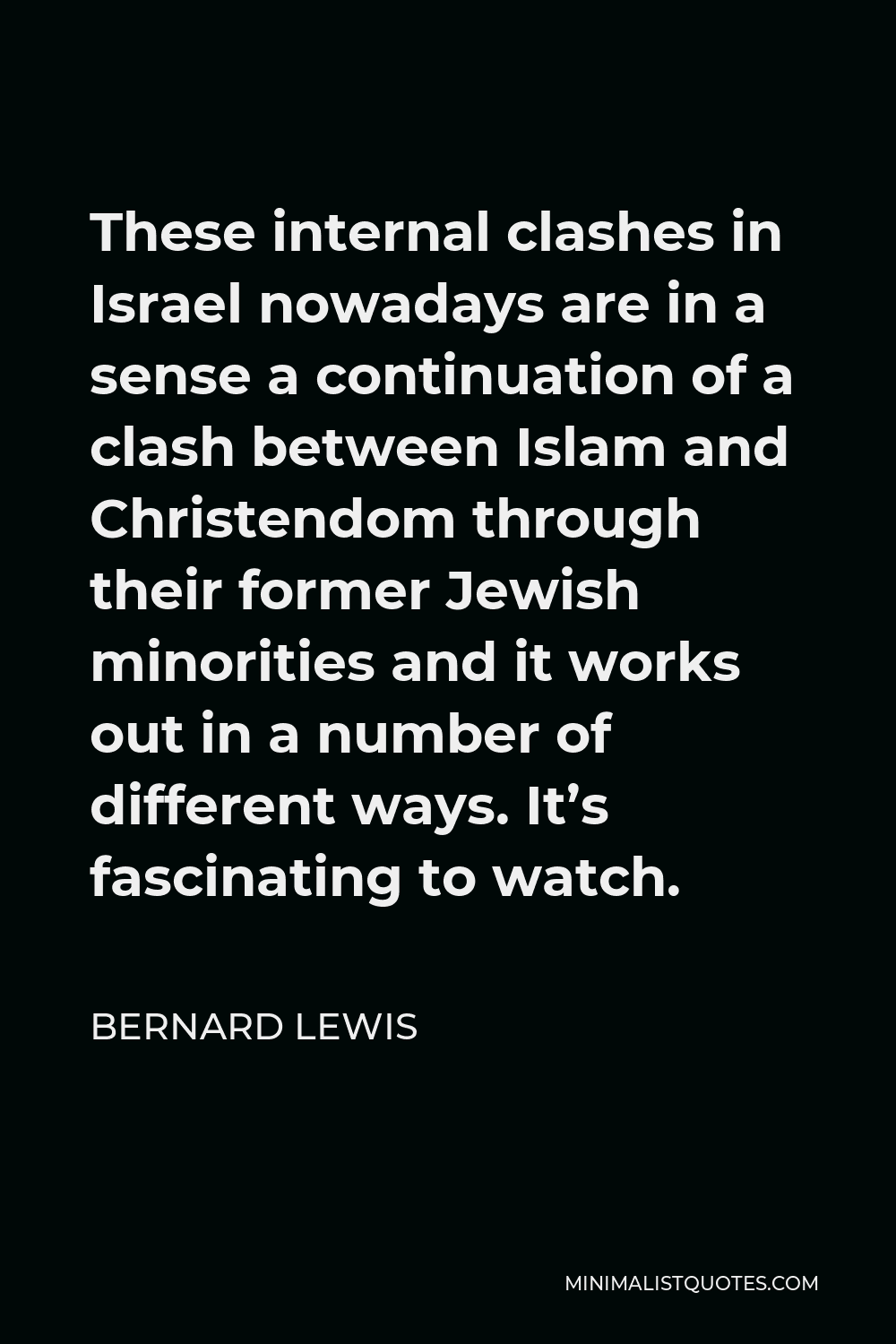
These internal clashes in Israel nowadays are in a sense a continuation of a clash between Islam and Christendom through their former Jewish minorities and it works out in a number of different ways. It’s fascinating to watch.
BERNARD LEWIS -





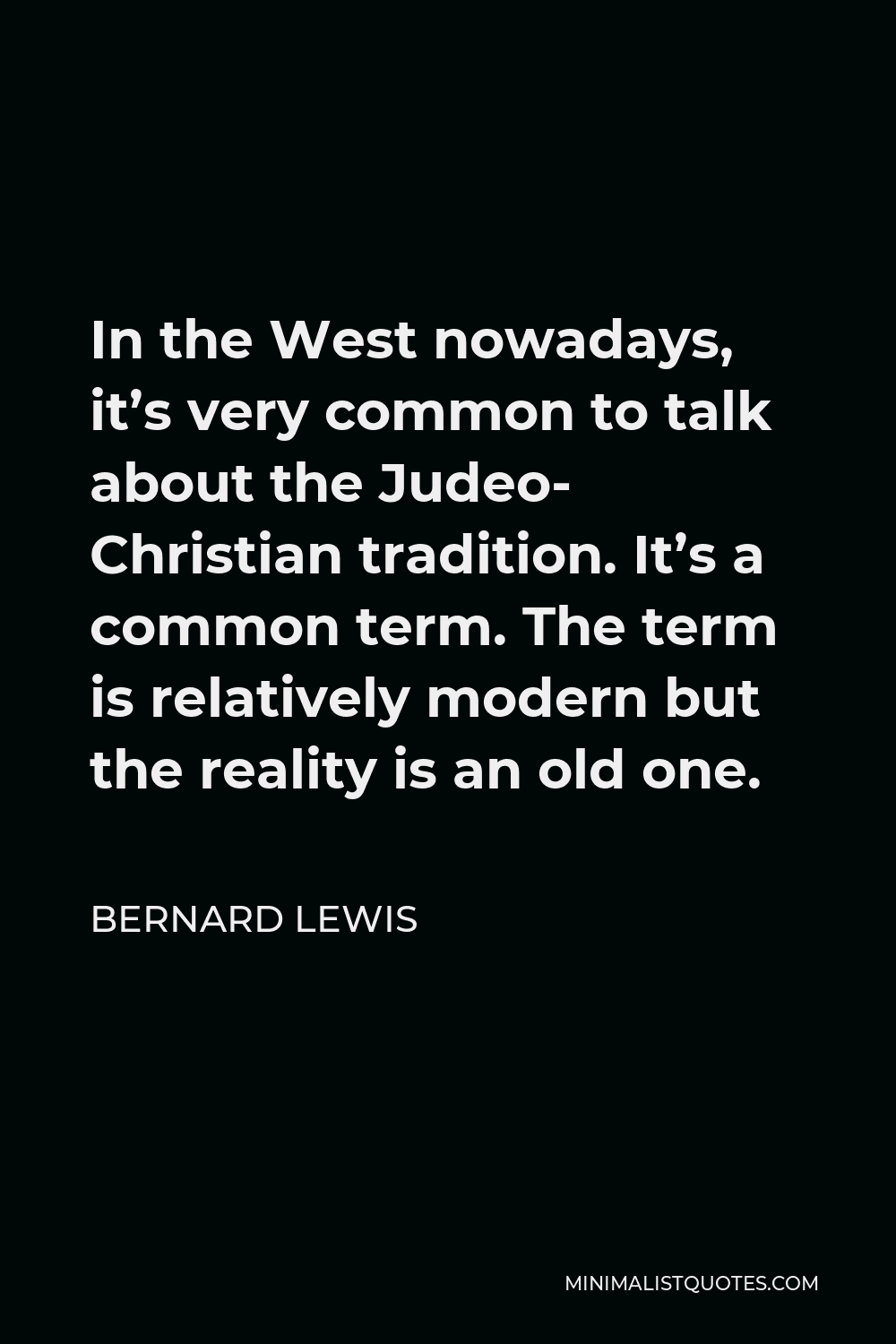
In the West nowadays, it’s very common to talk about the Judeo- Christian tradition. It’s a common term. The term is relatively modern but the reality is an old one.
BERNARD LEWIS

